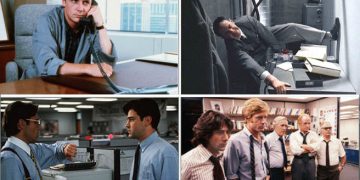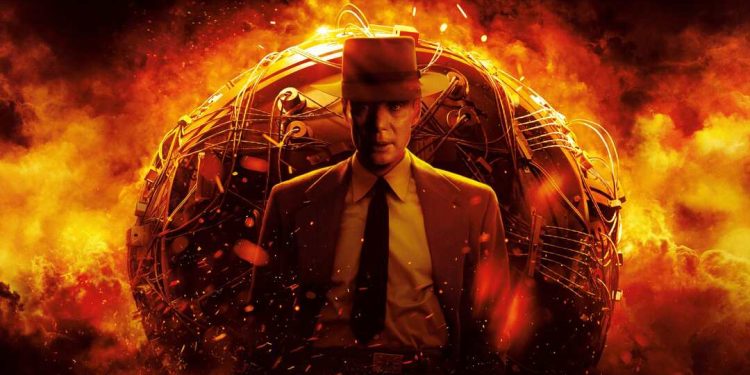Christopher Nolan’s latest film, Oppenheimer, is a sprawling epic that explores the life and legacy of J. Robert Oppenheimer, the physicist who led the Manhattan Project and ushered in the atomic age. The film stars Cillian Murphy as Oppenheimer, who delivers a captivating performance as a man haunted by his own creation and the consequences of his actions. Robert Downey Jr. co-stars as General Leslie Groves, the military leader who oversees the project and clashes with Oppenheimer over their conflicting visions and values.
Oppenheimer is not a conventional biopic, but a complex and nonlinear narrative that jumps back and forth in time, showing different aspects of Oppenheimer’s personality, relationships, and achievements. The film covers his early years as a brilliant and rebellious scientist, his involvement in the anti-fascist movement and the Communist Party, his romance and marriage with Kitty Harrison (Emily Blunt), his recruitment and management of hundreds of scientists at Los Alamos, his moral dilemmas and political struggles during and after the war, and his eventual downfall and disgrace at the hands of the McCarthyites.
Nolan uses his trademark cinematic techniques to create a visually stunning and immersive experience for the audience. The film is shot on IMAX film, which captures the beauty and vastness of the New Mexico desert, as well as the intimacy and intensity of the human face. The film also features spectacular sound design and music by Ludwig Göransson, who creates a haunting and atmospheric score that blends classical and electronic elements. The film’s climax, the Trinity test, is a breathtaking spectacle that conveys both the awe and horror of the first atomic explosion.

Oppenheimer is not a flawless film, however. It has some drawbacks that may alienate some viewers. The film is very long, running over three hours, and may feel slow or tedious at times. The film also focuses almost exclusively on Oppenheimer’s perspective, leaving little room for other characters or viewpoints. The film does not show much of the Japanese experience or the devastation caused by the atomic bombs in Hiroshima and Nagasaki, which may seem insensitive or irresponsible. The film also assumes a lot of prior knowledge from the audience, as it does not explain much of the scientific or historical background of the project.
Despite these flaws, Oppenheimer is a masterful film that offers a compelling portrait of one of the most influential and controversial figures of the 20th century. It is a film that raises important questions about science, ethics, politics, and human nature. It is a film that challenges us to reflect on our own role and responsibility in shaping the world we live in.
You can watch the trailer for Oppenheimer here and find more information about the film on its IMDB page.































